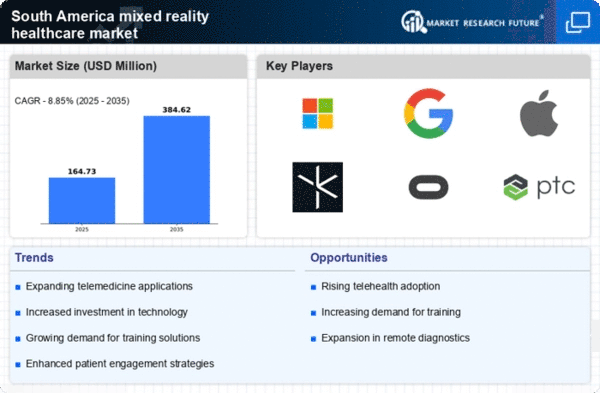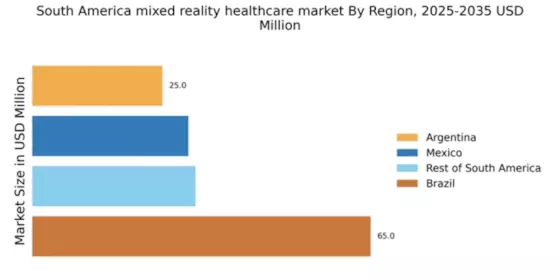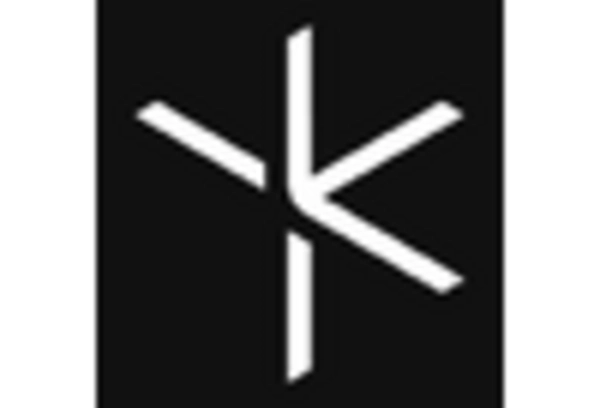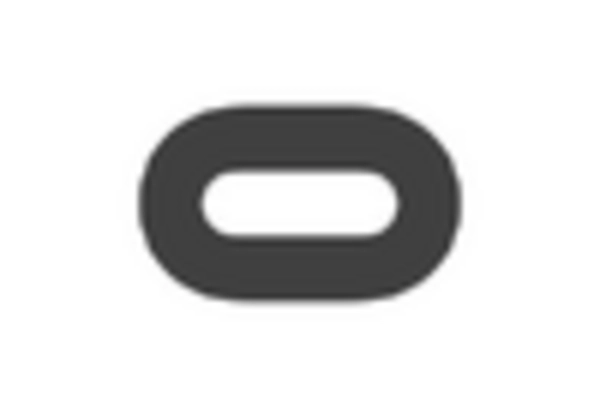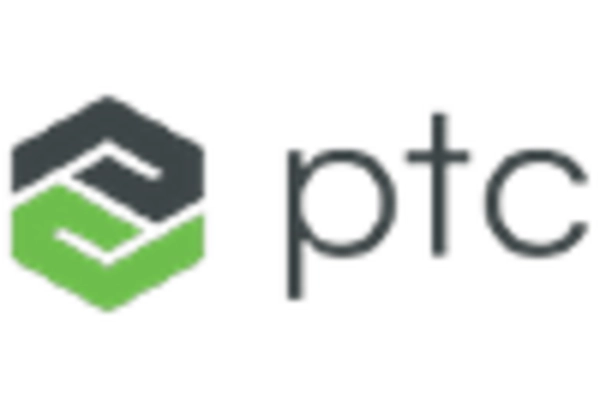Increased Focus on Medical Education
The mixed reality-healthcare market in South America is significantly influenced by an increased focus on medical education and training. Educational institutions are increasingly adopting mixed reality technologies to provide immersive learning experiences for medical students and professionals. For example, universities in Argentina are implementing VR simulations to teach surgical techniques, which can enhance learning outcomes. This shift towards experiential learning is supported by research indicating that students retain 75% of what they learn through active participation. As educational institutions recognize the benefits of mixed reality in training, the demand for these technologies in the healthcare sector is likely to grow, thereby driving the mixed reality-healthcare market.
Technological Advancements in Healthcare
The mixed reality-healthcare market in South America is experiencing a surge due to rapid technological advancements. Innovations in augmented reality (AR) and virtual reality (VR) are transforming how healthcare professionals interact with patients and medical data. For instance, the integration of AR in surgical procedures allows for enhanced visualization, which can lead to improved outcomes. According to recent data, the market for AR in healthcare is projected to grow at a CAGR of 30% through 2027 in South America. This growth is driven by the increasing demand for advanced surgical techniques and the need for effective training tools. As healthcare providers adopt these technologies, the mixed reality-healthcare market is likely to expand significantly, offering new solutions for patient care and medical education.
Rising Demand for Remote Patient Monitoring
The mixed reality-healthcare market in South America is witnessing a rising demand for remote patient monitoring solutions. As healthcare systems strive to improve patient outcomes while reducing costs, mixed reality technologies offer innovative ways to monitor patients outside traditional clinical settings. For instance, the use of AR applications can facilitate real-time health monitoring and provide patients with interactive guidance on managing their conditions. Recent statistics indicate that the remote patient monitoring market is expected to grow by 25% annually in South America, driven by the increasing prevalence of chronic diseases. This trend suggests that mixed reality solutions will play a pivotal role in enhancing patient engagement and adherence to treatment plans.
Emphasis on Personalized Healthcare Solutions
The mixed reality-healthcare market in South America is being propelled by an emphasis on personalized healthcare solutions. As patients increasingly seek tailored treatment options, healthcare providers are turning to mixed reality technologies to enhance the patient experience. For instance, AR applications can provide personalized visualizations of treatment plans, helping patients understand their health conditions better. This trend aligns with the growing consumer demand for individualized care, which is expected to increase by 20% in the coming years. Consequently, the mixed reality-healthcare market is likely to benefit from this shift, as providers adopt innovative solutions to meet the evolving needs of patients.
Growing Investment in Healthcare Infrastructure
Investment in healthcare infrastructure is a critical driver for the mixed reality-healthcare market in South America. Governments and private entities are increasingly allocating funds to modernize healthcare facilities, which includes the integration of mixed reality technologies. For example, Brazil has announced a $500 million initiative to enhance its healthcare system, which includes the adoption of mixed reality tools for training and patient engagement. This investment is expected to improve healthcare delivery and accessibility, thereby fostering the growth of the mixed reality-healthcare market. As facilities upgrade their technology, the demand for innovative solutions that enhance patient care and operational efficiency is likely to rise, further propelling market expansion.


